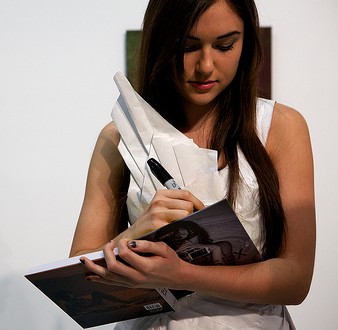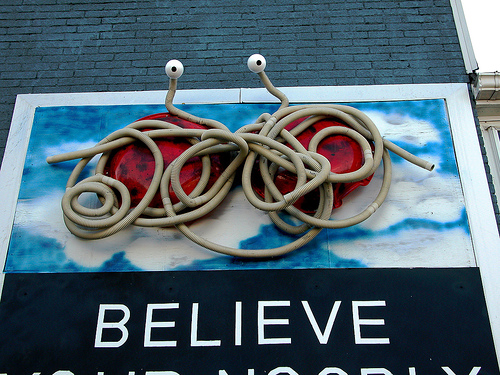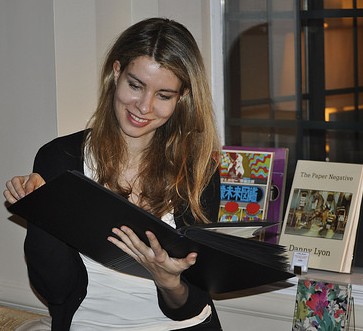Being the Person Your Writing Needs You to Be
Today’s guest post is by author Angie Dixon:
Life is about relationships. We have relationships with other people.
We even have relationships with things. You know that favorite sweatshirt you won’t throw out? I’ve pulled mine out of the trash can at least three times, and one day my husband will succeed in banishing it from the house.
We have relationships with places. You love your house or you hate it. You never forget where you were when you realized you were in love. We even have relationships with situations.
But the one relationship you may not pay enough attention to is your relationship with your writing. When you are who you need to be for your writing, your words will step up and be more for you.
Here’s how that works.
What Your Writing Needs
Let’s start with what your writing needs, and then look more in depth at things like why it needs that and where you find what your writing needs.
What your writing needs, first and foremost and above all and all of those other superlatives, is you. Your writing needs you to be who you really are.
I turned in my first long story sometime in the last century in a writing workshop led by a well-known journal editor and fiction writer. I thought my story was brilliant. Dr. Morgan said it was “not bad for a first workshop story, but something is missing.” That was high praise from him, so I beamed for a moment.
Then a fellow student ventured, “I feel like I’ve read this before.”
When I insisted that I’d just finished it, another student asked, “Have you read The Mists of Avalon?” I had. It was my favorite book, and I’d read it three times.
“Aah. That’s it. You sound like Marion Zimmer Bradley,” the first student said, and sat back in her chair as if that was the end of that.
Years later I was told a novel of mine sounded like Sue Grafton’s. It didn’t find a publisher, though it did find an agent—one who wasn’t very familiar with Sue Grafton, probably. Each of the six publishers who looked at it agreed that it was “missing something.”
What Was Missing?
The missing element in my short story and my novel was me. At the end of the class, when he rewarded my work with an A, Dr. Morgan proclaimed me “as good as I was at your age.” He added: “You’ll grow into it if you keep writing.”
Thought he didn’t say as much, what I needed to grow into was not just my voice but my Self, with a capital S.
I finally found my voice, and my style. In doing so I also found my Self.
I’m a nonfiction writer for creative people. I’m irreverent. I break grammar rules. I say, a lot, “Yeah. I’m not doing it that way.” And my readers identify with me because I’m me. I’m 100 percent authentically me, even when it hurts. Especially when it hurts.
Your Writing Needs You
The who your writing needs is you. The what is honesty. Whether you’re writing a memoir or a humorous novel, your writing needs you to be as honest and straightforward as you know how to be.
Your writing needs you honest because your readers need it. They need to know that when they laugh or cry or curse with you, they’re part of something that matters.
Your readers, and your writing, need you to mean it. You can’t play a writer on TV. You have to be who you are when you write, or you’re cheating your writing, your readers, and yourself.
I used to make a serious mistake in my writing. In my books I was real and honest and, if I say so myself, brutally funny at times. I even admitted once that I was not allowed near a sewing machine because I might sew my thumbs to my lips. (I’m better now and I own a sewing machine and am allowed to use it.)
In my articles, though, and sometimes on my blog, I was more serious. I wrote more how-to and not enough of what-is. Because—and here I go with breaking grammar rules for a good reason—I did not realize that my writing needs me to be who I am everywhere and every-when—which is, in fact, a word because I made it up.
I need to always be real because that’s what my writing needs. And I need my writing.
How to Stay Real
I stay real by listening to my gut and by watching my behavior. If I’m not laughing, nodding my head, and sometimes shaking my head at the silliness or the sadness of it all, I’m not really being myself as I’m writing. If I could read it six months later and not know I wrote it, I start over.
I can’t emphasize enough how much your writing needs you to be completely you. I’ve talked about the why of that in passing, but I want to be very clear here. This is why your writing needs your honesty and realness:
- First, that’s who your readers need. They need something real in a world of so much phoniness and triteness and clichés that don’t fit their lives.
- Second, your writing needs you to be who you really are because there already is everyone else. There’s a Hasidic Jewish saying that each person is unique: “For, had there ever before been someone like him, then he would not have needed to exist.” I can’t add anything to that except to say, if you aren’t writing from your own individuality, you’re not giving the world something it needs.
- Third, your writing needs you to be your true self because you need it. I can only speak for myself, but in the daily to and fro, I find myself echoing and mirroring other people more than I would like. I only say what I really feel and think with my husband, my almost-adult kids, and my best friend. And I say my truth in my writing. I need to be who I am when I’m writing to keep from losing myself around other people. I suspect you do, as well.
Where Does Your Realness Come From?
When you are real in your writing, you come across as very brave and true to yourself. Being that real and that honest in your writing takes a great deal of courage. Having said that, I want to be clear about where courageous realness comes from.
You might expect it to come from a place of deep courage deep inside. If you do, you’re probably thinking you don’t have that place and you can’t write from it. You may feel you can’t write from your true self because that deep place in you is one of anxiety and fear.
That’s exactly where you write from. The truth is that none of us has a deep well of courage and lack of fear. We can’t dig deep down and just bring forth all of our brave realness. The truth is that courage is not lack of fear. Courage is acting in spite of your fear.
Being real in your writing is choosing to say what you truly think, feel, and believe, knowing that you might not like the results of that choice. Rather, you might not like all of the results. For each person who completely gets you and what you’re saying, there may be one or one hundred who don’t get your message or who don’t like it or who enjoy being rude and obnoxious.
And that’s why your writing needs you to be real. Because when you face the fear of the results you don’t want, something happens to you. You open yourself to the results you need. You become more of who you are. You lose your fear of being who you think you are, and you become who you know you are. And that’s who your writing, and the world, needs you to be.
Angie Dixon is the author of The Leonardo Trait: An Owner’s Manual for the Brains of Profoundly Creative People. Take Angie’s free creativity quiz to find out your creativity style and learn more about Angie and The Leonardo Trait here.
Photo Credit: brandon shigeta via Compfight cc












Thanks for the reminder. I have been stalled, lately, in my writing. I make feeble attempts at fitting in to certain categories, but it’s like having shoes that are too tight. I limp along, trying to stretch the shoe, but then I have to kick them off and walk barefoot.
What a tortured metaphor!
I needed this.
Julianne, shoes that are too tight, indeed. I’m glad I could offer something you could use.
Thank you for this wisdom. Your last paragraph sums it up so well: “When you face the fear of the results you don’t want … you open yourself to the results you need.”
Thank you, Michael. I do think that’s what it’s all about.
Wonderful post. In a world of so many voices pushing and shoving you into their corner of creativity, you have given me back the nugget–I get to say. And I think I will. THANKS!
Absolutely, Beth.
I’m all about being who you really are, not being what someone else wants you to be.
I started writing for my own enjoyment. When I had completed my first story, I figured why not give it a shot at publication.
It is all me, bad grammer and all! I sit on my patio and allow the story to form and then I hit the computer and type.
Although I do read a lot, almost every minutes I’m not writing, I don’t find any similarities with anything I’ve read.
Like me or not; I is what I is!!!!
Yep. You is what you is, and that’s great!
Great post. I needed to hear this right now.
I have my “professional” voice and my “humor” voice and my “literary” voice. It will be interesting to try to keep them all “my voice”.
It will be interesting, indeed. I’m sure you can do it.
Great post, Angie! So many times, I’ve tried to fit my writing into a category that doesn’t feel natural to me, and every time, it’s felt off. After years of blogging and writing, I’m finally comfortable writing in my true voice. The only time that’s difficult is when I’m lacking in inspiration but have to write anyway. It takes a bit longer to get around that, but successfully doing so feels so good every time.
Thanks, and glad I could say something you could identify with!
Great post, Angie! So many times, I’ve tried to fit my writing into a category that doesn’t feel natural to me, and every time, it’s felt off. After years of blogging and writing, I’m finally comfortable writing in my true voice. The only time that’s difficult is when I’m lacking in inspiration but have to write anyway. It takes a bit longer to get around that, but successfully doing so feels so good every time.
Your article is a gift for every writer. More often than not, we don’t realise what we CAN do to help others, simply by being ourselves. But opening up that far — letting others share our “private thoughts and wishes” found in our writing — is rather daunting. As a writer, published or not, we really DO want to share, but that means “you need to be you” (as you so eloquently encouraged us).
Many of us are shy or introverted, which is why we start out writing “for ourselves.” But eventually there comes a time when we see how this one short story or book just might hit home with someone else who needs that particular spark of light. Maybe (like your article) it will encourage the reader, inspire them or simply make them laugh and feel better. But the writer will never know until they make that quantum leap to share. One may never be published, but trying never hurts. Those new horizons out there will likely reveal more than one expected — a fuller grasp of who you are.
“A fuller grasp of who we are”–indeed. Thank you, Linda. I’m glad you enjoyed the article and thank you for the kind thoughts.
This sounded ideal. I will let you know when I am finally being paid well for being myself with my writing, especially the query letters.
I have not felt like I had to be completely fake with most of my professional writing, but much like so many job interviews …With me, aside from working in small, friendly businesses, the need to be professional “behave professionally” felt like the old starched collar, uncomfortably tight corset and not daring to move while the nail polish finishes drying.
Worst case scenarios were when I felt that by “behaving professional” it was like having a real Christmas tree wear a few fake branches. I mean, this is not a closet slam against people who weave into their hair and it works and looks great, but just…That Marilyn Manson song with the line “I feel fake as a (wedding?) cake?” or something.
Miriam,
Yes. Some people can wear a weave, some can’t. I understand what you’re saying completely.
Thanks Angie. Yes, an authentic voice always shines through. Being as transparent as we can manage as writers and in life is the essence of relating.
The essence of relating. Yes, I like that. Thank you.
When other people speak in my novel, I sometimes don’t recognize myself in their words, BUT they certainly aren’t anyone else’s and many of those words are stunning.
I guess I will just have to disagree on this one.
I don’t think we necessarily disagree. I’m referring to saying what other people want you to say, which you certainly are not.
Fantastic. Trying to be someone else never works any way. When you start writing as yourself you can ask the question- Do you feel more like you do than you did before? And answer with a resounding YES
I love that question! Thank you! Just what I needed on this bronchitis-Laden day 🙂
Angie, hope you feel better! Thanks so much for the inspiring post and for all your responses to comments!
Angie,
Thank you for an authentic, level-headed and practical post. I often struggle with my voice because I want to sound smart and informative. The truth is, I have a great sense of humor, which I generally leave out of my writing. If I find that part of me when I write, I might become more successful. I’ll have to think about that! Is that an oxymoron? Oh well, I’ll keep trying.
I think wanting to sound smart is common. It took me a while to really embrace my humor, too, but now I define words according to the Dixonary-the Angie Dixonary.
THis was a very apposite post for me right now! Having faced the editing of a story that murdered my darling, authenticity now goes into do I watch that happen? Or do I snatch it up and walk away? Funnily it was about something that had taken real courage to write, but which I ended up pleased to have done. So being brave, and ‘being you’ extends, it seems beyond the writing.
The midwife editor that needs to bring something to birth, (maybe a breach birth) has to tread a difficult line between her judgement to amputate and the author’s vision of the whole child. Problematic for both!